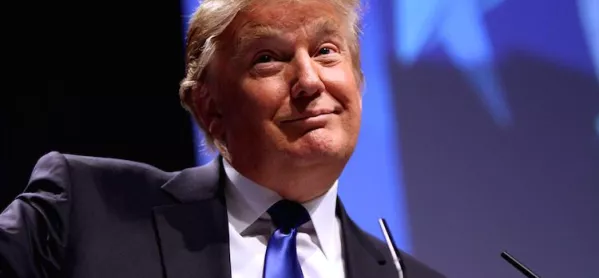Last week Donald Trump was impeached for a historic second time - you probably noticed.
While talking politics in school can cause consternation for teachers, there are some events that we should not shy away from discussing - especially when they provide such great teaching and learning moments. Trump’s impeachment is one such event.
After all, the scale of the news coverage will mean that students are almost certainly aware of what happened, even if they don’t quite understand the details.
How to teach about Donald Trump’s impeachment
Here are some ways to tackle this news event in the classroom, and the benefits of doing so.
1. Behaviour lessons
Younger pupils will have picked up pockets of information from comments they have heard, but it may be helpful to frame the situation in school terms they can understand.
For example, you could ask them to consider the actions of the captain of a school sporting team who loses to a rival and then refuses to shake hands after defeat in a cup final, claims the other side cheated and leads a protest against the school.
Is this suitable behaviour? What should the captain do? What should their friends do when the pupil is making these claims? What should the school do in response to such behaviour?
I used this analogy successfully with Year 4 pupils. Through it, we had interesting discussions on issues of behaviour, fair play, embracing loss and even being a good friend. It provided an excellent way to explore the issue in more detail.
2. Language and history
There are all kinds of new words that the impeachment process brings up. It’s likely they’ve all heard the word “impeachment” but do they really know what it means?
There are many more, too: “senate”, “congress”, “representative”, “republic”…obviously depending on your class age and learning level, you can adjust accordingly, but again it’s a great way to introduce new words with purpose and meaning.
From this, we can help children to not only build their vocabulary but also gain a greater understanding of the world around them and start to understand news in more context.
For older pupils, this could also extend into wider discussions about the history of impeachment, its place in American history and the significance of its usage.
3. Debate the issue
Of course, we don’t want to tell children what to think - we want them to become inquiring, creative thinkers. The Trump impeachment is perfect for this.
You could ask students to consider questions such as if it was right for Congress to impeach him, what the protesters should have done differently and how leaders should have behaved. Was Trump simply exercising free speech?
For young pupils, you could return to the sports analogy if it makes it easier for them to contextualise their arguments.
Setting these debates helps students to build their understanding of the world they live in and become active rather than passive citizens engaged in the world around them. You will be surprised at how engaged pupils can become, regularly updating you with what they have learned in their spare time.
Trump’s impeachment raises so many questions and provides such fertile ground for conversations, we should not shy away from this. Let’s give agency to our students by tackling difficult topics and conversations and help them to understand the world around them.
Our children will be better for it.
Chris Lindop is head of year 6 at Rugby School Thailand
